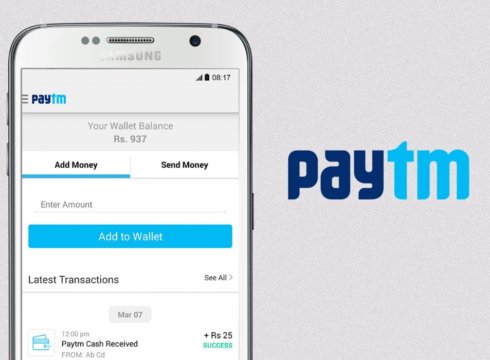Inc42 Daily Brief
Stay Ahead With Daily News & Analysis on India’s Tech & Startup Economy
Noida-based mcommerce company Paytm has introduced Aadhaar-based eKYC (E-Know Your Customer) to make customer verification a real-time, paperless process. The eKYC is part of an iSPIRT initiative India Stack.
Vijay Shekhar Sharma, Founder & CEO, Paytm said, “We are building India’s largest eKYC customer network to bring half a billion Indians to the mainstream economy. We have aggressive targets to become the largest Aadhaar-based eKYC company in the country.”
Paytm received a license from the Reserve Bank of India (RBI) to set up a payments bank along with 10 other companies in August 2015.
Payments banks differ from conventional banks as they are not allowed to lend to customers or issue credit cards. They can, however, accept deposits of up to $1500 (INR 1 Lakh) per individual, and can offer current and savings account deposits. They can also issue debit cards and offer internet banking.
Regulated entities like banks and wallet providers are required to carry out customer identification procedures, which constitutes the KYC (Know Your Customer) process of customer verification and helps avoid identity theft, financial fraud, money laundering, etc.
A typical KYC involves a tedious process of verifying the customer’s original documents of proof of identity and proof of address in person, among other things. The Aadhaar-based eKYC will be entirely paperless, instant and secure. The customer’s identity is verified instantly on the basis of matching the biometric scan of fingerprint or iris against the Aadhaar database.
When a customer requests to upgrade their Paytm account, they can either choose to visit the closest Paytm centre or request a visit from a Paytm agent at their preferred address. The eKYC process is carried out using a mobile-based biometric scanner. The customer’s consent is also captured using Aadhaar-based eSign, ensuring that the entire process is paperless. The process is secure since biometric details are used to verify identity, thereby reducing the possibility of fake/forged accounts.
Paytm has been working actively to launch the payments bank, since it received its license. In November 2015, Vijay Shekhar Sharma expressed his desire to raise funding in order to fund his payment bank. At that time he said he was ready to dilute close to 1% of his stake in his holding company, One97 Communications Ltd.
In February 2016, former RBI executive Shinjini Kumar joined Paytm’s payments bank as the CEO. In April 2016, The industry body Internet and Mobile Association of India (IAMAI) appointed Sharma as the chairman of the newly formed Payments Banks Group at IAMAI.
In May 2016, Paytm partnered with IT services company Wipro to create the requisite technology infrastructure for its upcoming payments bank business.
On the payments bank front, the Public Investment Board (PIB) approved India Post’s $116.7 Mn (INR 800 Cr) proposal for setting up a payments bank in February 2016. PIB, under the Finance Ministry, fosters investment proposals by state-run entities.
Apart from Paytm and India Post, Aditya Birla Nuvo Ltd, Airtel M Commerce Services Ltd, Cholamandalam Distribution Services Ltd, FINO PayTech Ltd, National Securities Depository Ltd (NSDL), Reliance Industries Ltd (RIL), Tech Mahindra Ltd, Vodafone M-Pesa Ltd (a unit of telco Vodafone India Ltd), and Dilip Sanghvi (founder of Sun Pharmaceuticals Ltd) have all received payments bank licences in August 2015.
Note: We at Inc42 take our ethics very seriously. More information about it can be found here.


